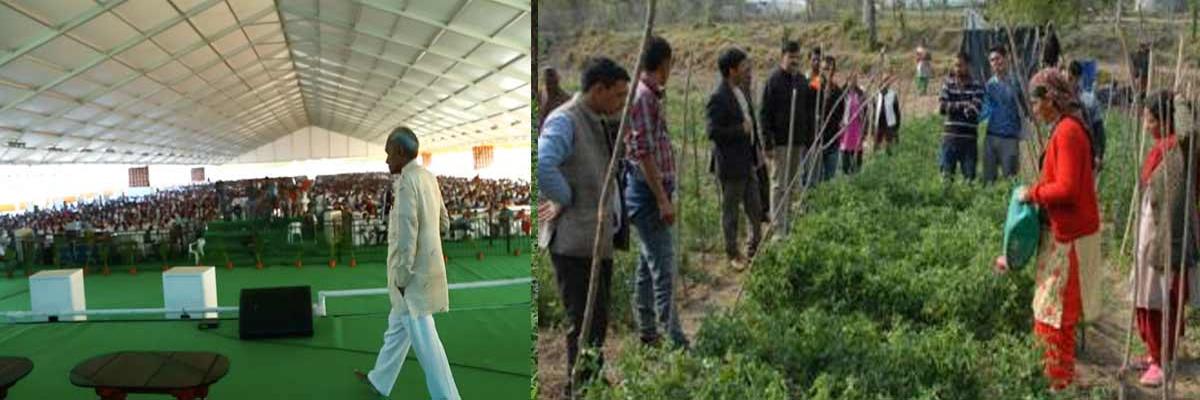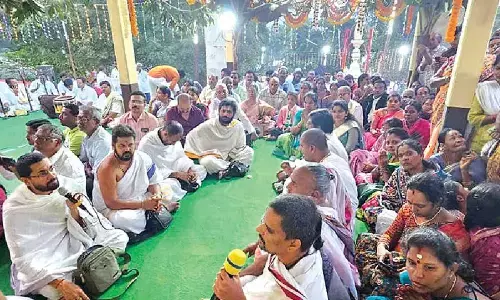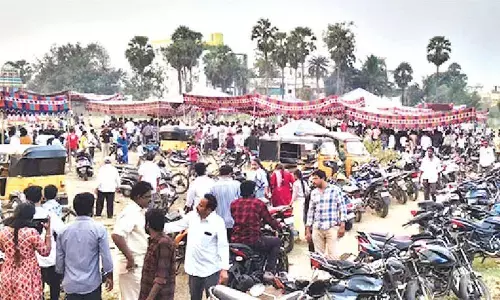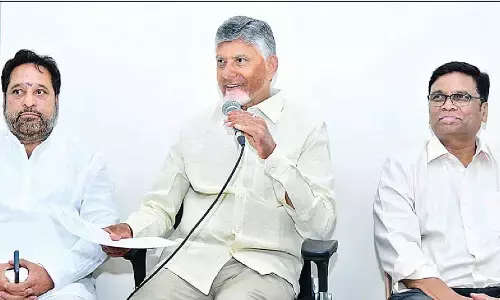Natural farming, a welcome move by AP CM

It is heartening to note that Zero Budget Natural Farming ZBNF is being promoted in the State of Andhra Pradesh The State government is contemplating to set up a natural farming university which could offer courses in ZBNF practices to farmers
It is heartening to note that Zero Budget Natural Farming (ZBNF) is being promoted in the State of Andhra Pradesh. The State government is contemplating to set up a natural farming university which could offer courses in ZBNF practices to farmers.
AP Chief Minister N Chandrababu Naidu, at the inaugural of 10-day training programme for farmers on Saturday, said the government was aiming to reach 60 lakh famers to implement ZBNF practices in two crore acres of land by 2019-20.
The State seems to have already begun tasting the benefit. According to Chandrababu Naidu, 40,656 farmers in 704 villages adopted ZBNF practices in 2016-17 and 1.63 lakh in 972 villages in 2017-18. Around 5.23 lakh farmers of 3,015 villages followed suit so far this year.
According to him, 87 percent of farmers benefited under ZBNF and that they had saved Rs 960 crore by avoiding using chemical fertilisers and pesticides.
The methods that are employed in ZBNF help make agriculture a viable proposition for farmers. Implementation of ZBNF practices would free farmer from usury. In India, the stress in agriculture is on account of the indebtedness of the farmer.
In several cases, the stress is so unbearable that farmers go to the extent of committing suicide. As India’s economy is primarily agrarian, it is essential that ZBNF is given the necessary thrust that it deserves.
Though the ZBNF is not new, focus on this method of farming would go a long way in not only helping the farmer stand on his feet but also reduce chemical pollution as the farming methods prescribe doing away with the use of fertilisers and pesticides.
The farmers, who have little money with them, have no access to inputs like fertilisers, pesticides, seeds and markets and as a result, they keep going to private money lenders for loan who charges exorbitant rates of interest.
Though some feeble attempts had been made in the past to free the farmer from the shackles of private money lender, they did not succeed as unlike banks, the credit is made readily available. The farmer does not mind high rates of interest because raising a loan from a money-lender is hassle-free.
Though it is Karnataka from where the movement originally began, it has spread to other southern States including Andhra Pradesh where it is being promoted on a wider scale by the Chief Minister. The movement picked up momentum after Palekar took it up in collaboration with Karnataka State Farmers’ Association - Karnataka Rajya Raitha Sangha (KRRS).
Realising the potential, the State government by a GO in 2014, constituted Rythu Sadhikara Samstha, a not-for-profit company under Section 8 of the Companies Act 2013 to create integrated institutional mechanism for all programmes, schemes and activities intended for farmer’s empowerment, encompassing welfare, development, capacity enhancement, credit flow, financial support and allied empowerment activities.
The Chief Minister seems to be on the right track- empowering the farmers, who happen to be the backbone of Indian economy. Freedom from dependence on moneylender is all that the farmer wants and there seems to be no better way than adopting natural farming practices to reach this goal.

















